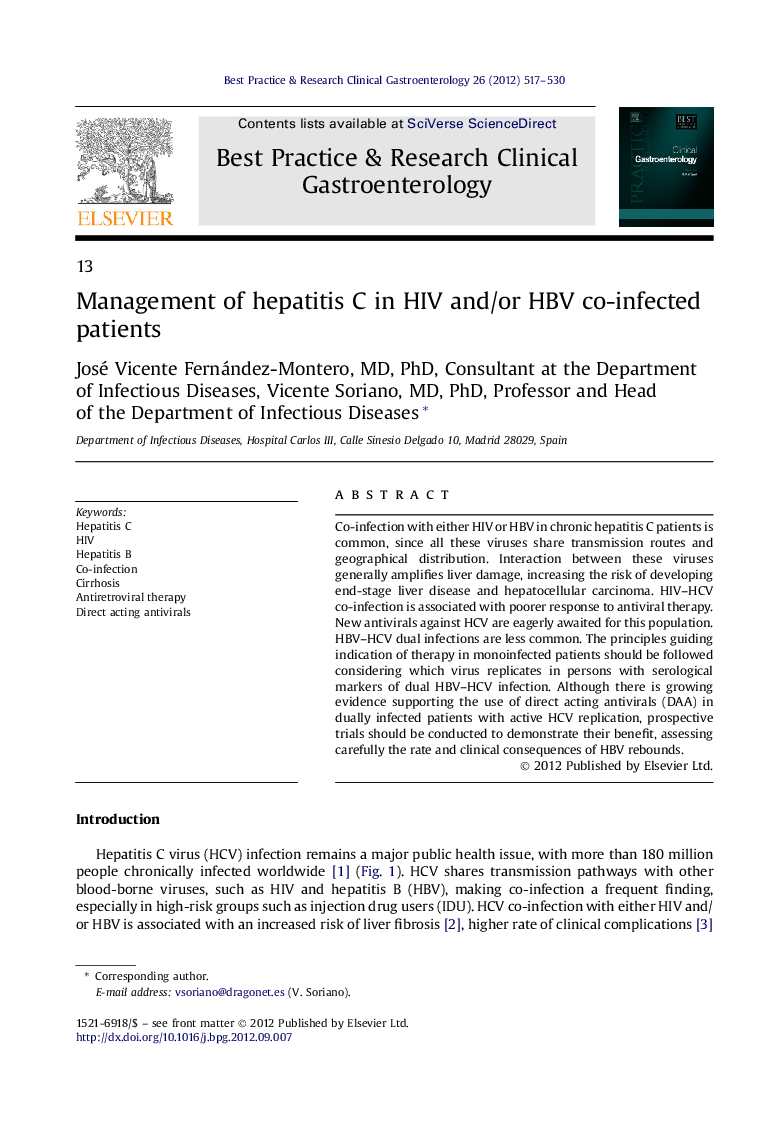| Article ID | Journal | Published Year | Pages | File Type |
|---|---|---|---|---|
| 3254202 | Best Practice & Research Clinical Gastroenterology | 2012 | 14 Pages |
Co-infection with either HIV or HBV in chronic hepatitis C patients is common, since all these viruses share transmission routes and geographical distribution. Interaction between these viruses generally amplifies liver damage, increasing the risk of developing end-stage liver disease and hepatocellular carcinoma. HIV–HCV co-infection is associated with poorer response to antiviral therapy. New antivirals against HCV are eagerly awaited for this population. HBV–HCV dual infections are less common. The principles guiding indication of therapy in monoinfected patients should be followed considering which virus replicates in persons with serological markers of dual HBV–HCV infection. Although there is growing evidence supporting the use of direct acting antivirals (DAA) in dually infected patients with active HCV replication, prospective trials should be conducted to demonstrate their benefit, assessing carefully the rate and clinical consequences of HBV rebounds.
